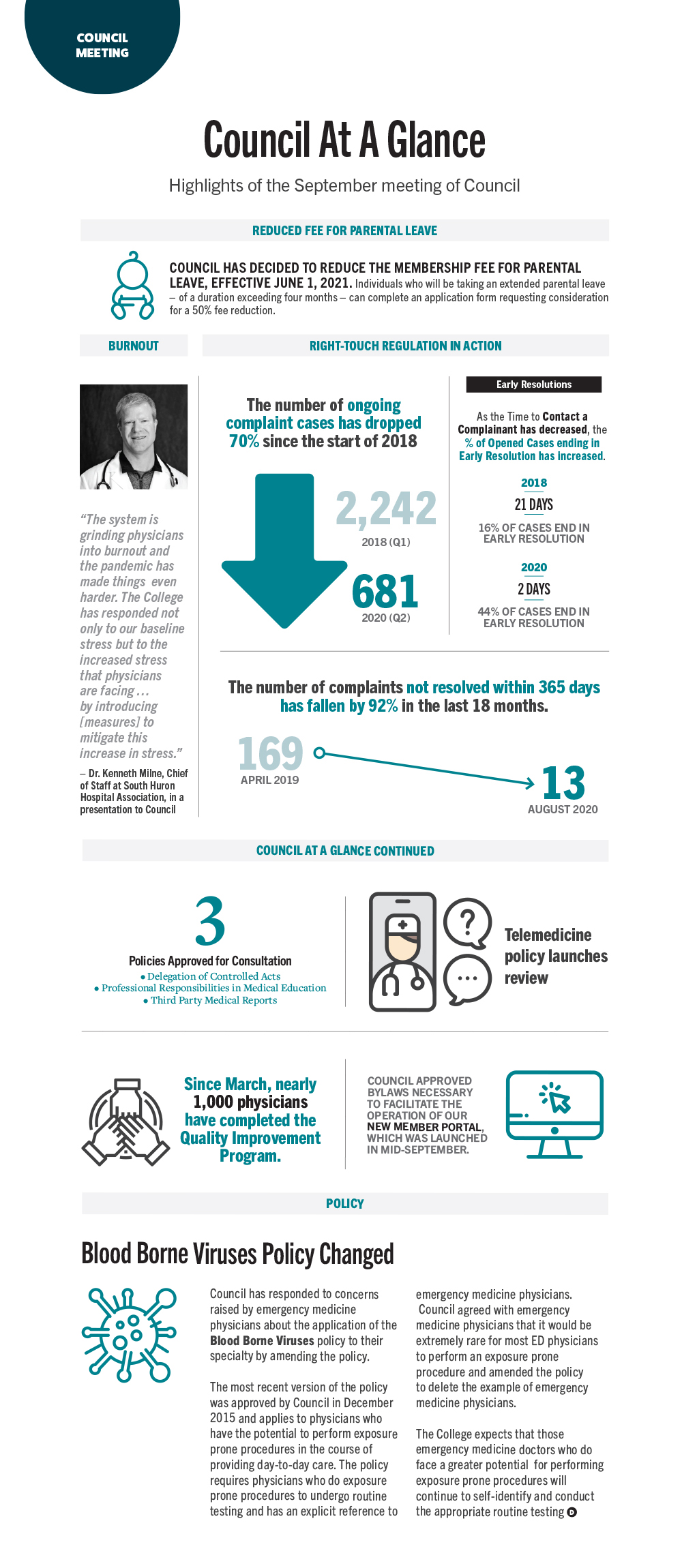The following are highlights of the September meeting of Council.

Council at a Glance infographic transcript
Reduced Fee for Parental Leave:
Council has decided to reduce the membership fee for parental leave, effective June 1, 2021. Individuals who will be taking an extended parental leave - of a duration exceeding four months - can complete an application form requesting consideration for a fifty percent fee reduction.
Complaints and Early Resolution:
- The number of ongoing complaint cases has dropped 70% since the start of 2018
- 2242 – Q1 2018
- 681 – Q2 2020
- The number of complaints not resolved within 365 days has fallen by 92% in the last 18 months.
- 169 – April 2019
- 13 – August 2020
- As the time to contact a complainant has decreased, the percentage of cases ending in early resolution has increased.
- In the first half of 2018, it took 21 days to contact a complainant after a concern was received. At that time, 16% of issues were resolved early. In April to June 2020, it took us two days to respond to a complaint. At that time, 44% of cases were ending with early resolution.
Right-Touch Regulation in Action
Since March, nearly 1000 physicians have completed our Quality Improvement program.
Three policies approved for consultation: Delegation of Controlled Acts, Professional Responsibilities in Medical Education, Third Party Medical Reports.
Telemedicine policy now under review.
Council approved by-laws necessary to facilitate the operation of our new Member Portal, which was launched in mid-September.
Policy
Council has responded to concerns raised by emergency medicine physicians about the application of the Blood Borne Viruses policy to their specialty by amending the policy.
The most recent version of the policy was approved by Council in December 2015 and applies to physicians who have the potential to perform exposure prone procedures in the course of providing day-to-day care. The policy requires physicians who do exposure
prone procedures to undergo routine testing and has an explicit reference to emergency medicine physicians. Council agreed with emergency medicine physicians that it would be extremely rare for most ED physicians to perform an exposure prone procedure and amended the policy to delete the example of emergency medicine physicians.
The College expects that those emergency medicine doctors who do face a greater potential for performing exposure prone procedures will continue to self-identify and conduct the appropriate routine testing.








